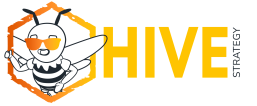A good education is one of the most sought-after aspects of American child rearing. This year, we even saw parents indicted for the desire to get their children into the best schools. So, what about your school -- how do parents and students find your school and learn how it will provide the best education for their children? Well, via the internet of course! But how can you ensure they find you in the huge worldwide web?
Well, friends, that's what we are talking about today.
Zach, one of our account managers, stated earlier this year that "the third word in SEO, optimization, refers to the way smart business owners create content specifically tailored so that their content, and their website, will show up more prominently on one or more of these search engines.
Many marketing and enrollment professionals understand this aspect of search engine optimization. They recognize the need to show up more prominently in search results. However, identifying the best ways to optimize a website are a little more fuzzy.
In my last post in this series, I shared that educational institutions are not utilizing content marketing because they never have. They didn't need to in the past. But, have you noticed things have changed? With the rise of handheld computing devices (yes, I'm talking about cell phones) coupled with the ability to search for ANYTHING in the world (I'm looking at you Google), our society is heavily dependent on digital searches. No longer do we need to wonder, no longer do we need to inherently know things, no longer does a billboard or where the parents went to school matter. We can, in a matter of minutes, find a school that has the characteristics that we find important for our own, or our children's, education. Well -- if that school has actually put those characteristics on their website for a search engine to find, that is.
Jonah Deaver, who has worked with 200 university programs, says it’s critical to engage with prospective students starting from the awareness stage.
But HOW are they supposed to find you???
The answer is with properly OPTIMIZED content that is organically optimized by the search engines and instantly delivered when a prospective student says they want a school with those predetermined characteristics, programs, or location that you have!
SEO Optimized Content Marketing
On page, SEO is the active creation of content on your website to fuel information for search engines. Search engines need to know what your school offers, what those offerings entail, and yes, even how much it costs to earn that education! With rich content that explains these items to search engines, your content is more likely to be seen in a user's search results. Some key factors that can help with SEO include:
- Setting up a hub and spoke site architecture and utilizing topic clusters
- Ensuring each page has 500 - 1000 words for optimal search engine indexing
- Utilizing keyword research to focus page content, metadata, and headings (especially H1, H2, and H3)
- Using that same keyword in your page url
If you implement the above tactics, it increases how often your pages show up on search engine results page (SERP). Since most people only look at page one of the SERP, the more work you can do to increase your search rankings, the better chance you have of finding those prospective students who are looking for exactly what you offer.
Using an Education Blog
Blogging is merely one form of content marketing. In my opinion, it is a must -- but it has to be done in combination with a couple of things:
- Proper keyword research based on your target persona -- what your prospective students are searching for as well as how they are wording it in the search
- Proper content for all stages of the decision process -- top, middle, and bottom of the funnel.
Search engines have a lot of websites to index and organize these days. Although not many education institutions are blogging, you are still competing with every other business that has a blog. This is why doing your own keyword research is so important to ensure that you are using the right terms and phrases that your unique prospective students are searching for.
We have many more tips in our Free Blogging Checklist to make sure you get the most out of each blog you post to your site!
High Value, Downloadable Content
Smart institutions may also include gated content along with their ungated content, like blogs. Gated Content, often called High Value Content (HVC), provides prospects with essential information. In the case of educational institutions, this HVC might be an eBook, infographic, or video that gives prospects tips, tricks, and insider info needed to make the best long-term decision on where to attend college. This gated content allows you to collect names, email addresses, or phone numbers of prospects and run a lead nurturing automated email campaign to stay top of mind with them. The biggest question here is usually, "What on earth can we provide that will entice people enough to give their name and contact info?" We have a few ideas of course:
- 10 Tips for a Successful School Application
- Best Kept Secrets of Attending XYZ University
- Why XYZ's Liberal Arts Degree Outshines the Rest
But we are just guessing! A great source of HVC ideas lives with your help desk staff, receptionist, current students or enrollment staff. What are prospects asking them before an application is submitted or even during the process? Mine these questions to create the foundation for some incredibly compelling HVC!
Another idea bubbling up recently for HVC is what to expect: what to expect in the application process; how long does the application process take; who approves an application and so forth. We find it helpful to get front line staff in a room and brainstorm all of the things people are asking to know before they apply, before they enroll, before they get that degree. And yes, offering them food to brainstorm is always a good way to help get those with a knowledge base of questions in the room together.
With these tactics implemented with search engines in mind, you'll begin seeing results within three to six months. Remember that consistent and frequent updates are also a key component to search rankings. So, keep adding content with these aspects in mind.
Are you liking these ideas, but still not sure you can create compelling content with an SEO focus? We've worked with various educational organizations, from charter schools to universities, and we love digging into their specialized offerings to provide strategic analysis and direction on content titles that will attract their unique student personas. Whether you work in enrollment or marketing, we can provide our custom GrowthPlan to share those content plans and tactics for you or your team to execute.










